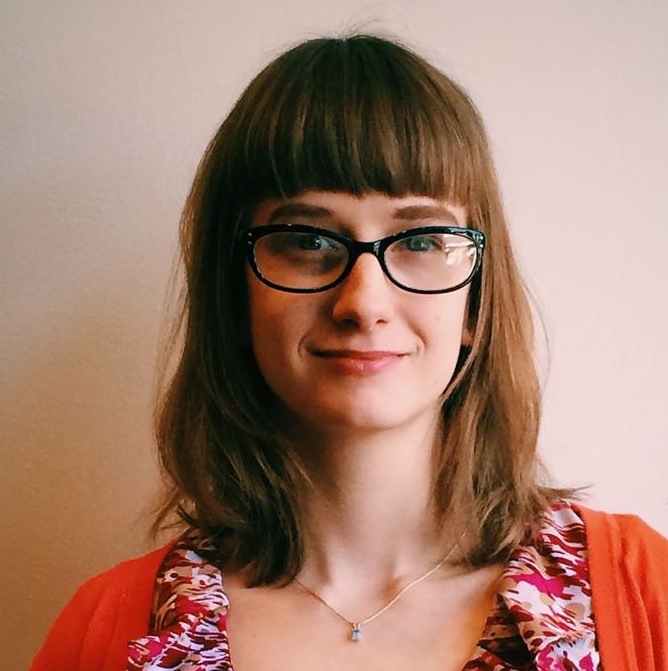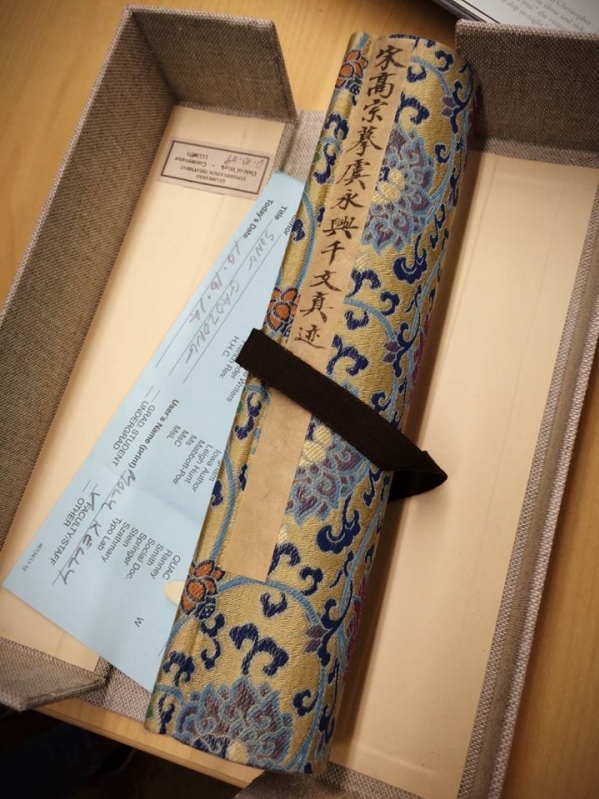|
| |
Teaching Tip: Consider a Visit to Special CollectionsMolly Kelley, University of Iowa  When asked what the library is for, my students answer “books.” This answer is given with the same flat cadence as someone might answer “clothes” when asked what a closet is for, and why on earth would anyone want a book anyhow? The answer gets a bit more developed when I ask what my students actually use the library for. The most common responses being to use a computer or to buy between-class snacks. One of my more resourceful students seems to only use the library as an inexpensive place to park his car. I am not sure how I feel about that one. When asked what the library is for, my students answer “books.” This answer is given with the same flat cadence as someone might answer “clothes” when asked what a closet is for, and why on earth would anyone want a book anyhow? The answer gets a bit more developed when I ask what my students actually use the library for. The most common responses being to use a computer or to buy between-class snacks. One of my more resourceful students seems to only use the library as an inexpensive place to park his car. I am not sure how I feel about that one.The purpose of my writing this article is not to judge my students for their use of the library. My position is that the function of the library is dynamic, and though the role of the library may change with the times, the necessity of the library does not. I do, however, believe that my students are underutilizing this asset, and this brings me to special collections. Special collections is a part of many university libraries which houses rare books as well as items that need special preservation. Special collections is a place where academics gain access to medieval manuscripts, artists’ books, and innumerable other items as unique as they are engaging. I take my students to special collections every semester, and I want to make a few arguments as to why you should as well. The greatest advantage to a visit to special collections is that it puts students into close contact with librarians. Feeling comfortable with librarians is paramount because it helps students develop confidence in asking for help. This is huge when it comes to the issue of plagiarism, when many students do not fully understand what needs to be cited, and even if they do, the mechanics of writing an in-text citation or a works cited page are, more often than not, baffling. Getting students comfortable with librarians provides them with a valuable resource when it comes to research and reference.  A visit to special collections also gives students a genuine academic experience. Since special collections is equal parts library and museum, and since students are in such close contact with remarkable materials, the experience regularly inspires them. For example, the special collections at the University of Iowa has a copy of the Chinese poem “The Thousand Character Classic” from the year 1579. It was written, by hand, on a silk scroll, and it is magnificent. The majority of my students are from Mainland China, and being in such close contact with a piece of their history brings up earnest and positive feelings. This has motivated many of them to research the scroll with a genuine passion, which would be hard for me to illicit otherwise. A visit to special collections also gives students a genuine academic experience. Since special collections is equal parts library and museum, and since students are in such close contact with remarkable materials, the experience regularly inspires them. For example, the special collections at the University of Iowa has a copy of the Chinese poem “The Thousand Character Classic” from the year 1579. It was written, by hand, on a silk scroll, and it is magnificent. The majority of my students are from Mainland China, and being in such close contact with a piece of their history brings up earnest and positive feelings. This has motivated many of them to research the scroll with a genuine passion, which would be hard for me to illicit otherwise. Another thing to recognize is the issue of universities devoting resources to assist the international community. It has become ubiquitous for universities to recruit international students, but it is equally common for them to fail to provide support for these same students once they are on campus. When you demonstrate need, more funding becomes available. Quite simply, taking international students to special collections and encouraging them to take advantage of more library resources results in universities developing materials specific to the international community. If the aforementioned reasoning has led you, in any way, to consider organizing a trip to special collections for your students, I will consider this piece a success. Exposing our students to the library beyond the computer lab is a legitimate step toward securing their success. | |
| ITBE Link - Winter 2015 - Volume 42 Number 4 |